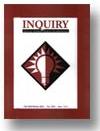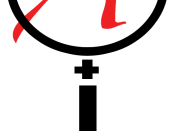Critical thinkers: distinguish between fact and opinion; ask questions; make detailed observations; uncover assumptions and define their terms; and make assertions based on sound logic and solid evidence. (Elis, 1997).
Critical thinking helps people make better decisions and come up with better answers because of the process of critical thinking. Critical thinking goes beyond the normal thinking process and takes it several steps further. Critical thinkers have several attributes, they ask pertinent questions, assess statements and arguments, they are able to admit a lack of understanding or information, have a sense of curiosity, are interested in finding new solutions, able to clearly define a set of criteria for analyzing ideas, willing to examine beliefs, assumptions, and opinions and weigh them against facts, listens carefully to others and is able to give feedback, sees that critical thinking is a lifelong process of self-assessment suspends judgment until all facts have been gathered and considered, looks for evidence to support assumption and beliefs is able to adjust opinions when new facts are found looks for proof examines problems closely is able to reject information that is incorrect or irrelevant.
(Ferrett, 1997).
People are not born with the ability to think critically, nor do they expand this ability naturally beyond survival-level thinking. Critical thinking can be described as the scientific method applied by ordinary people to the ordinary world. This is true because critical thinking mimics the well-known method of scientific investigation: a question is identified, an hypothesis formulated, relevant data sought and gathered, the hypothesis is logically tested and evaluated, and reliable conclusions are drawn from the result. The skills of scientific investigation are matched by critical thinking, which is therefore nothing more than scientific method used in everyday life rather than in specifically scientific disciplines or endeavors. Critical thinking is scientific thinking.


